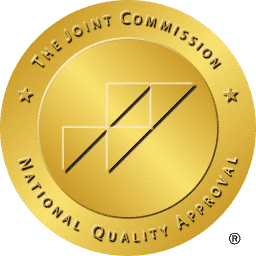What is Dilaudid?
Dilaudid is an opioid medication used to treat moderate to severe pain. It is a semi-synthetic opioid that is structurally similar to morphine.
Dilaudid is usually given intravenously, intramuscularly or orally. The drug was developed in the 1950s by medical researchers at Knoll Pharmaceutical Company and has been on the market since 1961.
Main Component of Dilaudid
The main component of Dilaudid is hydromorphone, binds to opioid receptors in the brain and spinal cord, which decreases the perception of and response to pain. Dilaudid also causes drowsiness, which can lead to dizziness or lightheadedness when moving from a sitting or lying position.
Generic Name Hydromorphone
Hydromorphone is the generic name for Dilaudid. Hydromorphone is a shorter duration and up to eight times greater sedation than morphine.
Available in tablets, rectal suppositories, oral solutions, and injectable formulations.
Street Names:
D, Dillies, Dust, Footballs, Juice, and Smack
Dilaudid Extended Release Tablets

The Dilaudid (hydromorphone) extended-release capsules and extended-release tablets are prescribed to relieve pain in opioid-tolerant patients that have severe enough pain that may require pain relief around-the-clock and for a long period of time.
Should Not be Used for Short Periods of Time
Hydromorphone extended-release capsules and extended-release tablets should not be used for short periods of time, such as during recovery from a surgery.
Do not use this medication to relieve mild pain. This medicine should not be used “as needed” to treat pain that you only have once in a while.
Dilaudid Treatment for Severe Pain
Dilaudid (hydromorphone hydrochloride) is classified as an opioid agonist that operates similarly to morphine and heroin, but it can be much more potent than these drugs.
Opiate Drugs Readily Attach to the Receptor Sites
All opiate drugs readily attach to the receptor sites in the brain such as endorphins, that are specialized for neurotransmitters, that are naturally involved in exertion, stress and the control of pain.
Opiate drugs are primarily designed to treat pain associated with injury, postoperative pain and or some other chronic condition.
Dilaudid Side Effects

Some other side effects of Dilaudid are irregular sleeping, appetite loss, mood swings, and changes in behavior. People who take the drug for long periods may start to experience withdrawal symptoms, and their appetite may also be affected.
It is important to tell your doctor if you are feeling any side effects or withdrawal symptoms. Opioid tolerant patients severe and intense pain can become unbalanced if they drink alcohol and it is important to seek medical attention and call your doctor if any of the below symptoms are felt.
- Agitation
- Black, bloody, or tarry stools
- Bloating or swelling of the hands, feet, face, arms, hands, or lower legs
- Fast, pounding, slow, or irregular heartbeat
- Blurred vision
- Change in behavior
- Chest discomfort or pain
- Difficulty urinating
- Migraine headaches
- Abdominal pain
- Respiratory depression
- Joint pain
- Dry mouth
- Breathing problems or trouble breathing
- Accidental overdose
- Lightheadedness, dizziness, or fainting
- Mood or mental changes
Dilaudid Withdrawal Symptoms
Common Dilaudid withdrawal symptoms include:
- Muscle and bone pain
- Diarrhea
- Restlessness
- Tremors
- Intense drug cravings
- Body cramps
- Sweats
- Shaking
- Vomiting
- Anxiety
- Agitation
- Elevated blood pressure
Opioids
Opioids, including Hydromorphone and Dilaudid, are drugs used to treat moderate to severe pain. These drugs act on the central nervous system to reduce pain by binding to opioid receptors. These drugs may be used for short or long-term pain.
However, they can be habit-forming and can cause unpleasant side effects when stopped abruptly. Dilaudid affects the body differently depending on the route of administration. It can be taken as a pill or in a liquid, or injected intravenously, intramuscularly, or rectally.
Tell Your Doctor Before Taking Dilaudid with Other Drugs

While hydromorphone and Dilaudid are effective pain medications, they can also cause a number of side effects, including vomiting and diarrhea. Taking these drugs together is also risky, and it can interact with other substances, including alcohol, Benzodiazepines, and other CNS depressants.
Dilaudid is Habit Forming
Dilaudid is habit forming and your healthcare provider will certainly suggest following the prescription label. There is a medication guide with all opioids that will address when to seek medical attention.
Combination of Drugs Can Cause Seizures or Death
A combination of drugs can cause seizure and respiratory failure. In addition, hydromorphone and Dilaudid can interact with vitamins and herbal products, which can also cause problems.
The oral liquid and extended release tablets carry a strong warning from the FDA. Hydromorphone is a very potent schedule II controlled opioid agonist. The risk evaluation has a high potential for abuse and producing respiratory depression. To drink alcohol and central nervous system depressants (sedative-hypnotics) potentiate the respiratory depressant effects of Hydromophone and will increase the risk of respiratory depression that can result in death.
You Should not Take Dilaudid
You should not take Dilaudid if you have ever had an allergic reaction to hydromorphone or other narcotic medicines. If you have any breathing problems, sleep apnea, a blockage in your stomach or intestines, or a bowel obstruction called paralytic ileus, a history of head injury, brain tumor, kidney disease, or seizures. Tell your doctor, as it is unsafe to take this medication.
Serotonin Syndrome
If you have used a MAO inhibitor in the past 14 days. A dangerous drug interaction could occur causing serotonin syndrome.
Patients taking an opioid along with a serotonergic medicine should tell their doctor if they begin to feel off and experience: agitation, hallucinations, rapid heart rate, fever, excessive sweating, shivering, muscle twitching or stiffness, feel uncoordinated, nausea, vomiting, or diarrhea.
Symptoms generally start within several hours to a few days of taking an opioid with another medicine.
Opioid Analgesic Rems

The Food and Drug Administration requires an opioid analgesic REMS.
Health care providers that provide opioid analgesics along side services and care to patients taking opioids are are strongly encouraged to follow the following suggestions:
Complete an FDA REMS-compliant accredited continuing education (CE) program offered by an accredited provider of CE for your discipline
Discuss the safe use, serious risks, storage, and disposal of opioid analgesics with patients and/or their caregivers every time you prescribe these medicines. Click here for the Patient Counseling Guide
Stress to patients and their caregivers the importance of reading the Medication Guide that they will receive from their pharmacist every time an opioid is dispensed to them
In addition to the Patient Counseling Guide, there are other publicly available tools to improve patient, household and community safety, including Patient-Provider Agreement (PPA) and risk assessment instruments
Drug Interactions
Dilaudid may cause dangerous side effects or even death when interacting with many other drugs. Some of these interactions may include:
Other Narcotics
Prescription cough medicine or opioid pain medicine
Sedatives like Valium
Diazepam, Klonopin, Xanax, Lorazepam, Alprazolam, Midazolam, and others
Drugs that Cause Slowed Breathing or Make you Sleepy
A muscle relaxer, sleeping pill, medicine to treat mental illness or mood disorders
Drugs that Affect the Levels of Serotonin in the Body
A stimulant, or medicine for depression, Parkinson’s disease, migraine headaches, serious infections, or nausea and vomiting.
What Happens During an Overdose?
A person will need emergency medical assistance if overdosing on Dilaudid. Hydromorphone overdoses are fatal for children and other adults who take it with no prescription. Overdose symptoms include drowsiness, headaches, fatigue, cold and clammy skin, and pinpoint pupils and fainting.
Precautions
As with any medication, there are some precautions when taking Dilaudid (Hydromorphone). This drug can make a person drowsy and dizzy, and may increase the risk of breathing problems or slow/shallow breathing. If you have a heart condition, or are taking other medications, it is important to talk to a doctor before taking Dilaudid.
There are several different categories of risks associated with taking this drug, so it is important to talk to your doctor before you start treatment. You may also want to consult a physician before taking this drug during pregnancy.
Dilaudid Opioid Addiction
Dilaudid, among many other opioids, can lead to physical dependence and addiction.
Approximately 2 million people around the world are addicted to opioid drugs. Addiction typically begins with dependence and the “need” for the drug to be able to function daily. Once dependence and tolerance develop, a person begins to abuse the drug, needing more and more to achieve the desired affects.
Signs of Addiction
Some warning signs that someone is abusing Dilaudid include erratic and unpredictable behavior. The person may become secretive and lose interest in activities they used to enjoy.
Their life may become dominated by their addiction, which may lead them to steal money or make lots of doctor’s appointments to get many prescriptions. They may also have significant weight fluctuations. Additionally, if they are taking Dilaudid for longer than they should, they may begin to neglect their daily responsibilities and relationships.
Dilaudid Physical Dependence
Dilaudid also causes tolerance and physical dependence, so a person may need to gradually wean their body off of it.
In addition to the risk for dependence, there is also a chance that drug abuse occurs due to the need for the drug. Drug abuse usually develops when the person is no longer using the drug to relieve pain, and instead is using for recreational purposes.
CarePlusNJ Addiction Recovery Services

CarePlus NJ is dedicated to a strength-based, person-centered approach to care and treatment. Our Intensive Outpatient and Outpatient Programs integrate evidence-based clinical practices, such as harm-reduction and motivational interviewing, with peer support and wraparound services designed for wellness and recovery.
Integrate Evidence-based Clinical Practices
Services that are included in our programs are also available individually, as needed. Our goal is always to integrate evidence-based clinical practices, such as harm-reduction and motivational interviewing, to support adolescents and their families in the journey of wellness and recovery.
Getting Help
Our specialized programs provide seamless access to services designed to support wellness and recovery in all aspects of life.
Upon evaluation, individuals and families are engaged in treatment planning to determine the most appropriate level of care, ranging from Early Intervention to Outpatient Withdrawal Management. Program support and follow-up care continues as needed.

Narcotic Analgesics
Narcotic analgesics are drugs that reduce pain. There are two types of narcotic analgesics: opiates and non-opiates. Opiates work by binding to receptors in the brain called opioid receptors. These receptors, when activated, create a sensation of euphoria or well-being, which reduces the perception of pain and provides relief from emotional distress.
Non-opiates work by binding to receptors in the brain called acetylcholine receptors. These receptors, when activated, block the transmission of signals from nerve endings to the brain and provide relief from pain by reducing inflammation in the body.

Morphine
Morphine is a powerful opioid that is used to alleviate pain and suppress cough or to manage pain after surgery when someone cannot take other medications. It can be taken as an injection or as a pill by mouth.
People with acute asthma may be given morphine by mouth or nebulizer (a machine that converts liquid medicine into a fine mist) in the emergency room. Side effects of morphine include nausea, vomiting, constipation, itching, dry mouth and confusion. Serious side effects include slowed breathing and low blood pressure which may result in fainting or dizziness when standing

OxyContin
Oxycontin is a medication that is used to help people with chronic pain. It can be used as a tablet or in liquid form. It is an opioid, which means it has similar effects as other drugs like morphine and heroin. This medication can be taken by mouth, or it can be injected into the body. The effects of this drug are felt within 10-20 minutes and last for about 4-6 hours.

Actiq
Actiq is an opioid and should not be used for the treatment of chronic pain. It is only appropriate for short-term relief of extreme pain. Actiq (fentanyl) is a strong opioid medication prescribed to treat breakthrough pain in cancer patients who are already taking other opioids for their chronic pain.
Actiq comes in the form of a small lollipop which dissolves on the tongue and can be used as needed for short periods of time (usually 1-2 hours). It is also available as a lozenge that can be dissolved in the mouth or placed under the tongue, or as an injection given by your doctor.

CarePlus NJ, INC. is dedicated to excellence in mental healthcare and has a commitment to life-long support needed by individuals and their families to ensure that they achieve their full potential and improve the quality of their lives.








